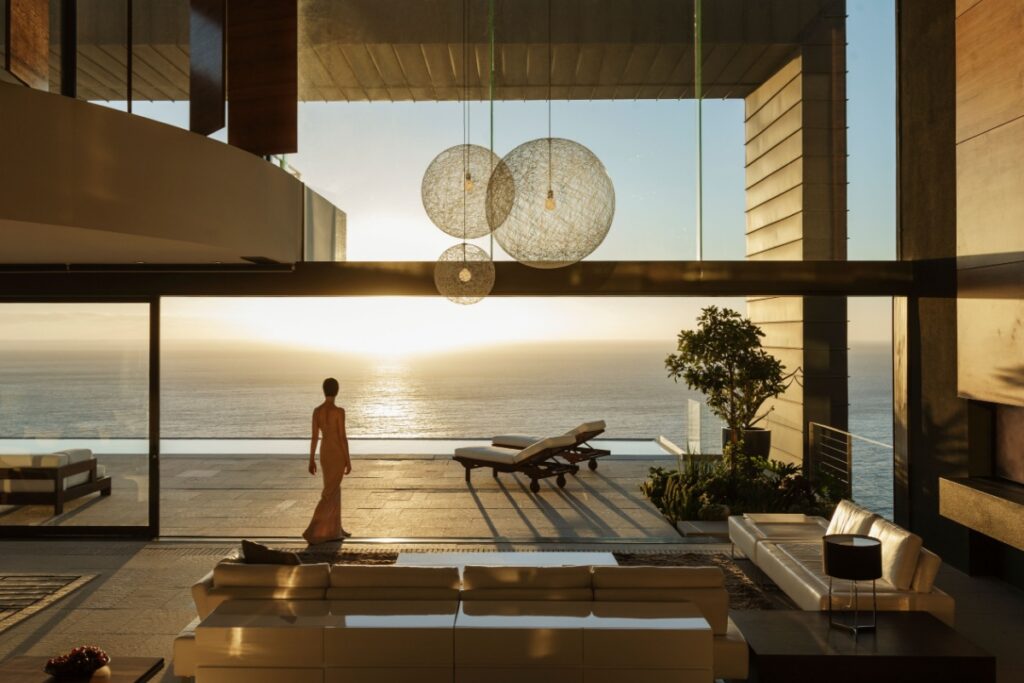Across the global luxury market, consumer priorities are shifting from owning high-end items to seeking unique experiences. Analysts report that affluent consumers, especially millennials and Gen Z, increasingly value time, access, and personalization over material possessions. Global consultancy Bain & Company forecasts that personal luxury goods sales may decline by up to 5% in 2025, following a slowdown that began in late 2024. Meanwhile, luxury travel spending is expanding rapidly—projected to reach USD 390 billion by 2028, up from USD 240 billion in 2023, according to McKinsey.
Shift In Consumer Spending Patterns
Travel data confirms the shift. Luxury hotel chains such as Four Seasons, Aman, and Rosewood have reported near-full occupancy across key destinations including Paris, Dubai, and Kyoto. Similarly, business-class and first-class air travel bookings rose more than 20% year on year from June to August 2025, driven by pent-up demand for post-pandemic leisure. The private-jet industry is also expanding: manufacturers expect over 820 jet deliveries this year, an increase of 7.3%, as ultra-wealthy travelers favor flexible, personalized mobility.
Strategic Moves by Luxury Brands
Luxury conglomerates are adapting to the experience trend by entering the hospitality and travel sector. LVMH, parent of Louis Vuitton, Dior, and Fendi, has aggressively expanded its Belmond hotel division and announced a 230-metre Orient Express yacht featuring 54 luxury suites, scheduled to debut from the French Riviera in 2026. Bvlgari Hotels & Resorts recently opened properties in Rome and Tokyo, while Armani and Versace continue to invest in branded residences and resorts. These ventures allow fashion houses to extend their brand aura beyond boutiques into lifestyle environments.
Hotel groups are likewise intensifying their luxury focus. Accor Group CEO Sébastien Bazin revealed plans to raise the luxury division’s share of total revenue from 35% today to 50% by 2030, emphasizing “high-touch personalization” as the core of growth. Yet analysts warn that over-expansion could erode exclusivity. CoStar Group projects the global luxury hotel inventory will rise from 1.8 million rooms in 2024 to 2.2 million by 2030. In London, alone, Rosewood, Six Senses, and Auberge are developing 1,618 new rooms in addition to the existing 18,750 luxury units—a potential test of market saturation.
Status, Social Media and the New Symbolism
Social value once attached to designer handbags or watches is now migrating toward exclusive experiences. According to Bernstein’s Richard Clarke, the rarity of an expedition to Antarctica or a private-island retreat now carries stronger prestige than an expensive handbag. As luxury goods become more accessible through global e-commerce, their status signaling power has diluted. In contrast, sharing travel experiences on Instagram or TikTok, from bespoke safaris to Michelin-starred pop-ups, has become a form of digital distinction among wealthy consumers.
Social media amplifies the experiential trend: a photograph from a secluded island or luxury train cabin conveys individuality and taste in ways products cannot. This dynamic has turned experience-driven travel into a modern badge of identity. However, experts note that brands risk repeating the fashion industry’s mistakes—when exclusivity eroded after aspirational lines flooded the market. To remain desirable, luxury-travel providers must balance growth with rarity, ensuring that premium clients still feel part of an elite circle.
Heritage Approaches and Luxury Identity
Traditional luxury houses provide a blueprint for maintaining scarcity. Hermès, guided by its founding family, limits production and prioritizes craftsmanship to sustain allure—an approach mirrored by select hotel groups. Rocco Forte Hotels, for example, operates just 15 properties globally, focusing on authentic service and heritage architecture. At Brown’s Hotel in London, staff greet returning guests by name, underlining that intimacy and recognition are still the essence of true luxury.
The evolution of luxury from ownership to experience reflects a deeper cultural change: as wealth broadens globally, exclusivity now lies in access, privacy, and personalization. The coming years may see an even closer fusion between hospitality, wellness, and design as high-net-worth travelers seek meaning alongside comfort. From polar expeditions to wellness retreats in Bhutan, luxury is being redefined—no longer measured in possessions, but in the rarity of moments one can live and share.


